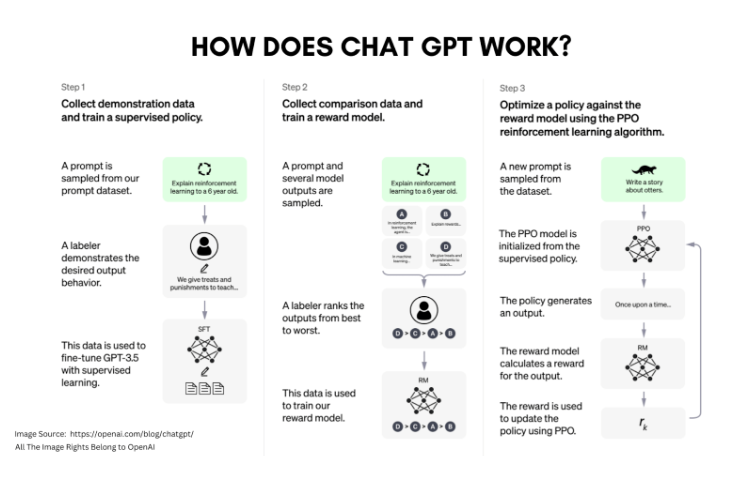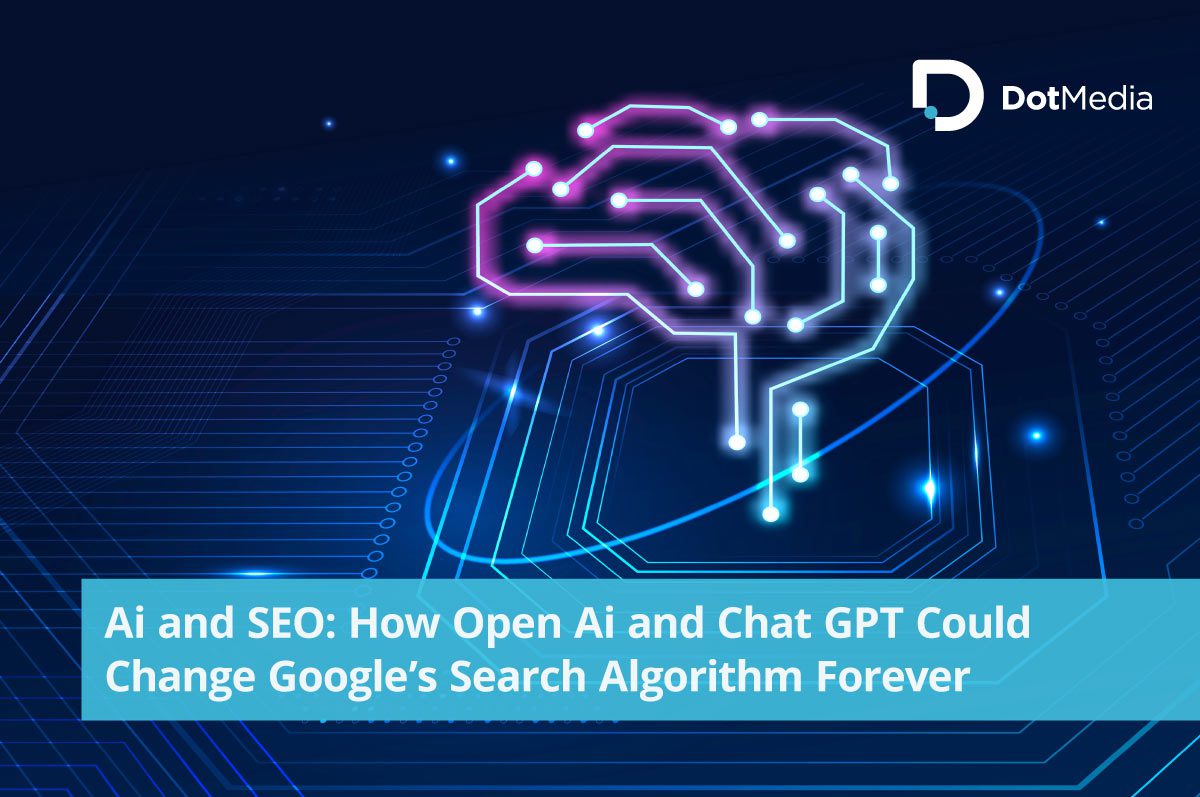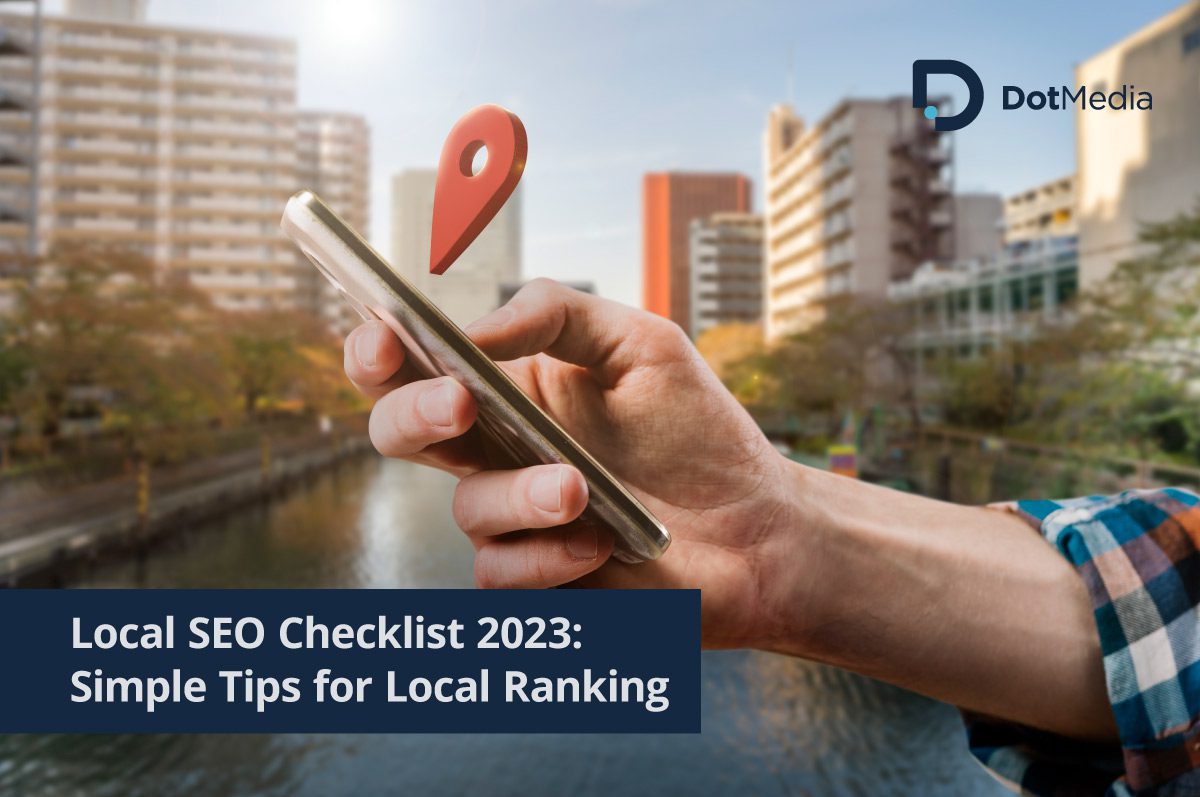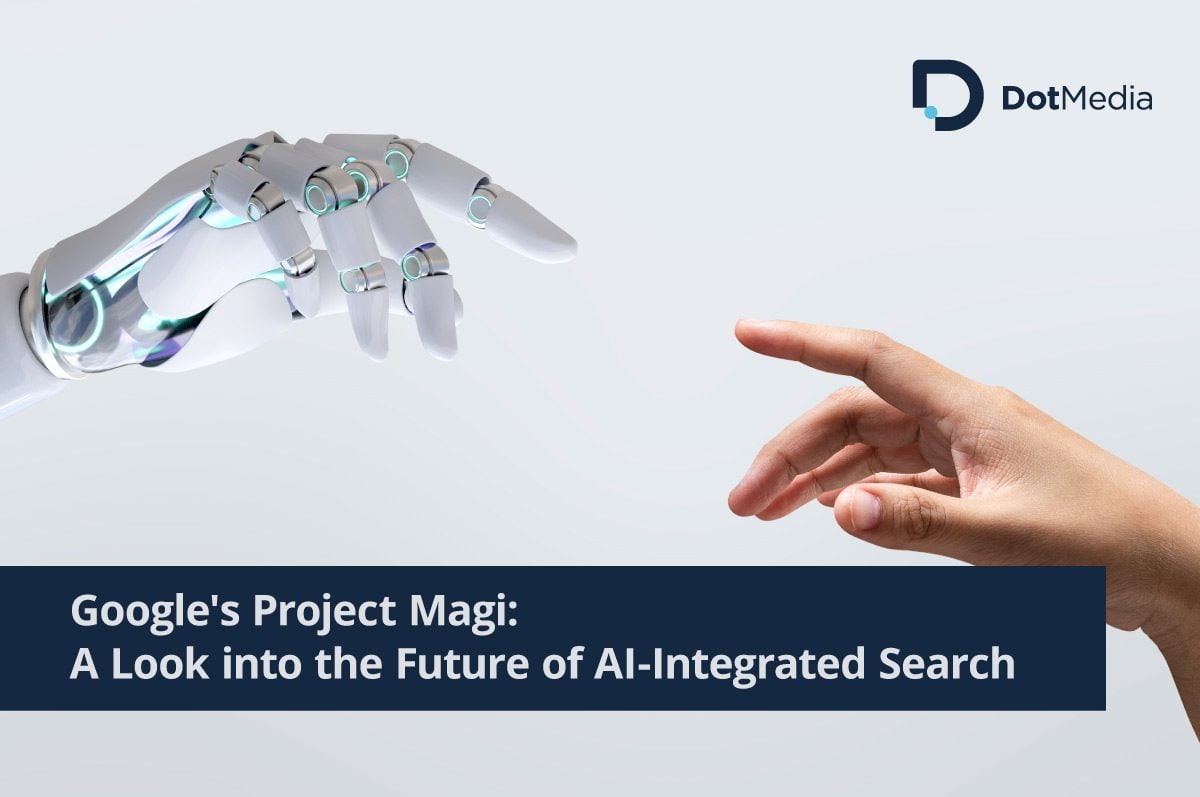AI and SEO
The world of search engine optimisation (SEO) is constantly evolving, with new technologies and techniques emerging every year. One of the most promising new developments in this space is using artificial intelligence (AI) to improve the accuracy and relevance of search results. In this article, we’ll explore how AI could change Google’s search algorithm forever, and we’ll also discuss the role of Chat GPT and SEO and the advancements in OpenAI in this process.
What is AI?
Before diving into how AI could revolutionise SEO, it’s important to define what we mean by AI. At its core, AI is the ability of machines to perform tasks that typically require human intelligence, such as learning, problem-solving, and decision-making. This is achieved through the use of algorithms and statistical models that can process and analyse large amounts of data, allowing machines to identify patterns and make predictions based on that data.
In the context of SEO, AI can be used to analyse search queries, understand the context of the content on a website, and identify the most relevant and valuable information to display in search results. This can help improve the accuracy and relevance of search results, which is crucial for both search engine users and businesses looking to improve their online visibility.
How AI could change Google’s search algorithm
Google’s search algorithm is already quite sophisticated, relying on a range of factors to determine the relevance and usefulness of a webpage for a given search query. However, using AI could take this to the next level, allowing Google to analyse a wider range of factors and make even more accurate and relevant search results.
AI could be used to analyse the content of web pages in greater detail. For example, AI could be used to identify a webpage’s underlying themes and topics, allowing Google to understand the content better and match it to relevant search queries. This could lead to more accurate and relevant search results for users, which would improve their overall search experience.
Another way in which AI could change Google’s search algorithm is by allowing Google to better understand the intent behind a search query. By analysing the language used in a search query and other contextual factors such as location and device type, AI could help Google better understand what a user is looking for and provide more relevant results. This would be especially helpful for more complex or ambiguous search queries, which can often be challenging to match with relevant results.
Finally, AI could analyse user behaviour and feedback, allowing Google to continually refine and improve its search algorithm over time. By monitoring which results from users click on, how long they spend on a webpage, and other engagement metrics, Google could gain valuable insights into which results are most relevant and useful to users. This could help Google to continually refine and improve its search algorithm, ensuring that it remains as accurate and relevant as possible.
The role of Chat GPT in AI and SEO
One of the most exciting new developments in the world of AI is the emergence of language models such as Chat GPT. Language models like Chat GPT are designed to process and analyse large amounts of text data, allowing them to understand the context and meaning behind natural language text.
This is particularly relevant for SEO, as much of the content on the web is in the form of natural language text. By using language models like Chat GPT, search engines can better understand the scope of web pages and match them to relevant search queries.
Chat GPT can also generate natural language text, which could have significant implications for content creation and optimisation. For example, businesses could use Chat GPT to generate high-quality, relevant content for their websites, which could help to improve their search rankings and attract more organic traffic.
There is no definitive data available on the number of users of Chat GPT, as it is an OpenAI product that is primarily intended for use by developers and researchers. However, it is estimated that GPT-3, which is the most advanced version of the GPT series, gained over 1 million users in its first week, including developers, researchers, and businesses.
As for the potential for OpenAI to kill off Google Search, it’s important to note that this is a highly unlikely scenario. While OpenAI is undoubtedly making significant advances in AI, Google Search is still the dominant search engine in the world, with over 92% of the global search engine market share as of January 2023, according to Statcounter.
It’s also worth noting that Google itself is heavily invested in AI and machine learning and is constantly working to improve its search algorithm using these technologies. This means that Google is well-positioned to continue to evolve and improve its search algorithm, even as the field of AI advances.
In summary, while Chat GPT and other OpenAI technologies have the potential to play an important role in the future of SEO, it is unlikely that they will kill off Google Search or other dominant search engines in the near future. Instead, it’s more likely that AI will continue to improve search algorithms and make search results more accurate and relevant for users.

Advancements in OpenAI and their impact on AI and SEO
OpenAI is a leading research organisation that is dedicated to advancing the field of AI. They have been responsible for many of the recent breakthroughs in AI, including the development of language models like GPT-3 and the creation of advanced neural networks for image and voice recognition.
One key way OpenAI impacts AI and SEO is through their work on natural language processing (NLP). By developing advanced NLP algorithms, OpenAI is helping to make AI more capable of understanding and processing natural language text. This has significant implications for SEO, as it means that search engines like Google can better understand the content of webpages and match them to relevant search queries and search intent.
OpenAI’s work on image and voice recognition is also important for SEO, as it allows search engines better to understand the visual and auditory content of webpages. This could lead to more accurate and relevant search results for users, as search engines can use this information to better match search queries with relevant visual and auditory content.
Advancements in OpenAI are also leading to the development of more sophisticated chatbots and virtual assistants, which could have significant implications for SEO. For example, businesses could use chatbots to engage with customers and provide them with personalised recommendations and support. This could help to improve customer satisfaction and drive more organic traffic to their website.

The future of AI and SEO
As AI continues to advance, it’s clear that it will play an increasingly important role in the world of SEO. By using AI to better understand the content of webpages and match them to relevant search queries, search engines like Google can improve the accuracy and relevance of search results. This is good news for both search engine users and businesses looking to improve their online visibility.
However, it’s also important to recognise that AI is not a silver bullet for SEO, AI-generated content can’t be used in isolation, and people will need to guide and inform it based on research. While AI can certainly help to improve the accuracy and relevance of search results, it’s not a substitute for high-quality content, a well-designed website, and other fundamental SEO best practices. Businesses that want to succeed in the world of SEO will need to continue to focus on these fundamentals while also staying up-to-date with the latest developments in AI and machine learning.
Chat GPT and SEO stats and facts:
Key Statistics of ChatGPT ChatGPT, an AI-based language model, was introduced on November 30, 2022. Its enhanced embedding model was rolled out on December 15, 2022. As of January 2023, it had 13 million active daily users, with a user base of 100 million by the end of the same month. In the first month of its launch, ChatGPT had over 57 million monthly users and gained one million users within a week of its debut.
To support the development of ChatGPT, Microsoft invested $10 billion in OpenAI and acquired a 46% stake in the company. OpenAI received an initial fund of $1 billion from Microsoft. The parent company of ChatGPT, OpenAI, is currently valued at $29 billion in 2023. However, ChatGPT can only access data before the year 2021 as its training stopped at that point.
Microsoft Azure provides OpenAI with the computational resources necessary for running ChatGPT. OpenAI anticipates generating a revenue of $200 million by the end of 2023 and $1 billion by the end of 2024.
How could Ai affect small businesses?
The use of AI in SEO has the potential to significantly impact small businesses in several ways. Here are a few examples:
- Improved search rankings: With the use of AI, search engines like Google can better understand the content of web pages and match them to relevant search queries. This can lead to improved search rankings for small businesses, which can, in turn, drive more traffic to their website and increase their visibility online.
- More accurate and relevant search results: AI can help improve search results’ accuracy and relevance, which is particularly important for small businesses that may not have the same level of online visibility as larger competitors. By ensuring that their website and content are properly optimised for search, small businesses can improve their chances of appearing in relevant search results.
- Personalisation: AI can be used to personalise search results based on a user’s search history, location, and other factors. This can be particularly helpful for small businesses that are targeting a specific geographic area or niche market, as it allows them to tailor their content and marketing efforts to the particular needs and interests of their target audience.
- Chatbots and virtual assistants: The development of more sophisticated chatbots and virtual assistants using AI can be particularly helpful for small businesses that may not have the resources to provide 24/7 customer support. By using chatbots and virtual assistants, small businesses can provide customers personalised support and recommendations, improving customer satisfaction and driving more business.
- Content creation: AI can also be used to generate high-quality, relevant content for small businesses, which can help to improve their search rankings and attract more organic traffic to their website. This is particularly helpful for small businesses that may not have the resources to create a large volume of content on their own.
Overall, the use of AI in SEO has the potential to level the playing field for small businesses, allowing them to compete more effectively with larger competitors and reach a wider audience online. By staying up-to-date with the latest developments in AI and machine learning, small businesses can ensure that they are making the most of these technologies and maximising their online visibility.
How to implement AI in small businesses?
Implementing AI in small businesses can seem like a daunting task, but with the right approach and resources, it can be a valuable tool for improving efficiency, personalisation, and overall customer experience. Here are some steps that small businesses can take to implement AI:
- Identify the areas where AI can have the greatest impact: Small businesses should start by identifying the areas where AI can have the most significant impact on their business. This might include automating repetitive tasks, improving customer experience, personalising marketing efforts, or generating high-quality content.
- Evaluate existing resources and skills: Small businesses should evaluate their existing resources and skills to determine if they have the expertise and technology necessary to implement AI. This might include hiring additional staff, investing in new technology, or partnering with an AI vendor.
- Determine the budget: Implementing AI can be costly, so small businesses should determine their budget and identify the areas where they can allocate resources. They may also consider seeking funding or grants to help cover implementation costs.
- Choose the right AI tools and platforms: There are a wide variety of AI tools and platforms available, so small businesses should choose the ones that best meet their needs and budget. This might include chatbots and virtual assistants for customer support, machine learning algorithms for data analysis, or natural language processing tools for content creation.
- Train staff and integrate AI into existing workflows: Once the AI tools and platforms are in place, small businesses should train staff on how to use them effectively and integrate them into existing workflows. This may require a change in processes and procedures, but the benefits of AI can be significant.
- Continually monitor and evaluate performance: Small businesses should continually monitor and evaluate the performance of their AI implementation to ensure that it is delivering the desired results. This may require ongoing training and support to keep staff up-to-date on the latest AI developments and best practices.
By following these steps, small businesses can successfully implement AI into their operations and reap the benefits of improved efficiency, personalisation, and customer experience. However, it’s important to remember that AI is not a magic solution and should be used in conjunction with other best practices and strategies for business success.
How could Ai better help content marketers and content creators?
AI can be a valuable tool for content marketers and content creators in several ways, including:
- Topic research: AI can be used to analyse search queries and social media conversations to identify the most popular topics and trends in a particular niche. This can help content marketers and creators to create content that is more likely to be shared and engaged with by their target audience.
- Content creation: AI can be used to generate high-quality, relevant content for a variety of formats, including articles, videos, and social media posts. This can help content creators to save time and resources while still producing high-quality content.
- Content optimisation: AI can be used to analyse the content of webpages and identify opportunities for optimisation, including keywords, meta descriptions, and other on-page factors. This can help content marketers and creators to improve their search rankings and attract more organic traffic to their websites.
- Personalisation: AI can be used to personalise content and marketing efforts based on a user’s search history, location, and other factors. This can help to improve customer satisfaction and drive more engagement with the brand.
- Content distribution: AI can be used to analyse user behaviour and engagement metrics to identify the most effective channels for content distribution. This can help content marketers and creators to target their efforts more effectively and reach a wider audience.
- Performance monitoring: AI can be used to monitor the performance of content and marketing efforts, including engagement metrics, social media mentions, and website traffic. This can help content marketers and creators to identify areas for improvement and refine their strategies over time.
Overall, the use of AI in content marketing and content creation can help to improve efficiency, personalisation, and overall customer experience. By staying up-to-date with the latest AI developments and best practices, content marketers and creators can ensure that they are making the most of these technologies and maximising their impact on their target audience.
Conclusion – AI and SEO: How Artificial Intelligence Could Change Google’s Search Algorithm Forever
In conclusion, AI is poised to significantly impact the world of SEO, and it could change Google’s search algorithm forever. By using AI to better understand the content of webpages, match them to relevant search queries, and continually refine and improve the search algorithm over time, search engines like Google can improve the accuracy and relevance of search results.
This is good news for both search engine users and businesses looking to improve their online visibility. With the continued advancements in OpenAI and the emergence of new technologies like Chat GPT, it’s clear that the future of AI and SEO is bright, and we can expect to see many exciting developments in the years ahead.





